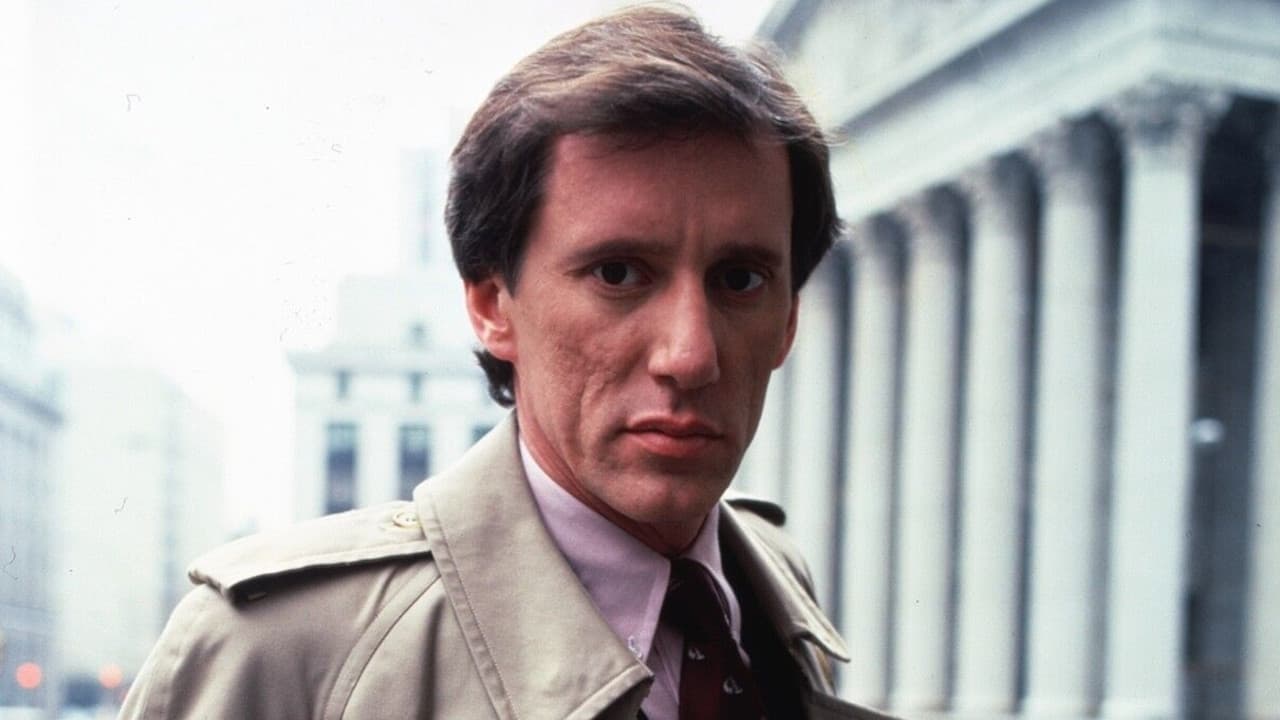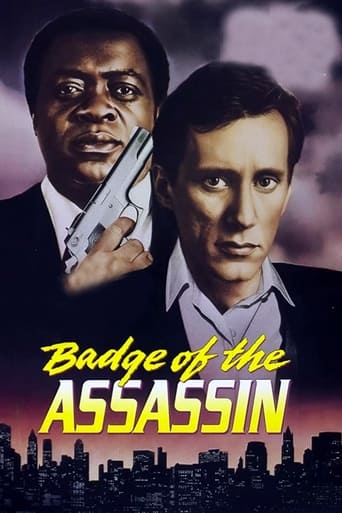Robert J. Maxwell
I can understand why some people might consider this movie dated and filled with stereotypes. All the symbols are there. "Let's off the pigs," and so on. It helps, though, to dispel that impression if you remember the 1960s and early 1970s when US cities were almost in a state of open warfare. Stepin Fetchitt never existed outside of the imagination of white people, but organizations like the Black Liberation Army, depicted here, did. And hate crimes based on race were all too common. (A bit of historical research will dig up Eldridge Cleaver's explanation for why he switched from raping black women to raping white women -- because raping white women was "a political act.") And Afros were so sizeable they had their own weather systems. It certainly makes it a bit difficult for us to put ourselves in the places of the characters in this movie."The Badge of the Assassin" is an admirably candid story. The B.L.A. executes two cops in New York (one black, one white) and then disperses, only to be rounded up after exhaustive effort by agents of several justice organizations, mainly the office of the NYC DA, Tannenbaum, played by James Woods, whose book this movie is based on.First-person accounts are often self serving, as Cleaver's was. But here, Woods is a member of an ensemble -- and an extremely good cast too. Pam Grier is no longer the epitome of beauty she'd been ten years earlier but is attractive, and a surprisingly subtle actress. Rae Dawn Chong is not beautiful but her features are magnetic and her performance fine. Alex Rocco is a reliable subordinate, although it's hard to accept him as a police officer who's last name is "Butler." Woods shows his usual mannerisms, which fit the character of a principled but ambitious DA rather well. His scenes with the New Orleans police are hilarious: the obstreperous New York Jewish lawyer and the soft-spoken, quietly menacing Good Old Boys trying to understand each other. The standout performance is an underplayed one by Yaphet Koto, who is a New York City detective. He's on the side of justice. Wow, is he smooth. His expression hardly alters, regardless of the scene he happens to be in, but he manages to project a considerable spectrum of emotions, including humor. (When he's stopped at an airport gate and asked to surrender his weapon before boarding the plane he goes into a mock rage and threatens to call "the president, my congressman, the Muslims, and the B'nai Brith!") In another scene he uses almost none of his features except his eyes when, questioning two black prisoners, he is called an "Uncle Tom." Later, the prisoners ask to speak to the black officer alone. With scarcely a twitch he replies, "A few minutes ago I was Uncle Tom. Now I'm a black officer." He and his character provide the kind of stability that a movie with James Woods so often needs. In another scene he bops his way down a rural street to make an arrest, bobbing and jumping, as if to some inner soul music.Of all the characters in the story, and there are many, aside from the victims and their families, I felt saddest about the BLA assassins. No one is born a murderer. They did it out of a sense of group loyalty. "This is my proof that I belong with you." You murder a complete stranger because of the color of his skin or the kind of clothes he's wearing. If anything in this movie is dated, homicide committed for reasons of race or resentment against any faceless group is dated, at least in most countries, and thank God for that.Editors rarely get much credit for their contribution to a film but in this case they deserve some. Many of the cuts are precisely timed, not a second too soon or too late.
John Seal
Badge of the Assassin benefits from strong performances by James Woods and Yaphet Kotto, but that shouldn't be surprising. Sadly the film reflects the 'colour blind' attitudes of the time it was made, a time when Americans were willfully trying to ignore the twin legacies of slavery and racism. We are given little (if any) insight into the minds of the revolutionaries, who are portrayed as cold blooded maniacs. Which they may or may not be...but the one dimensional characters depicted here are not satisying. There is no attempt to place their actions in context or to explain their motivation. Perhaps that's too much to expect from a TV movie, but I suspect in a decade or two this will look as anachronistic as the antics of Willie Best look to us today.
garyoverman
This is the true story, told from the viewpoint of the prosecutor, of the Jones-Piagentini case. NYPD officers Waverly Jones, who was black, and Joseph Piagentini are lured by a false call to a street corner and are ambushed and killed by a small band of black "revolutionaries".The film concentrates on the investigation by the police and the Manhattan district attorney and the two trials that followed.Good performances by an excellent cast, and a very good script, based upon prosecutor Robert Tannenbaum's book by the same title, give this film a sense of drama that is not usually seen.Overall, this was an excellent film.

